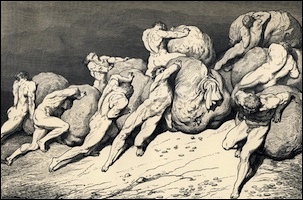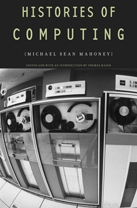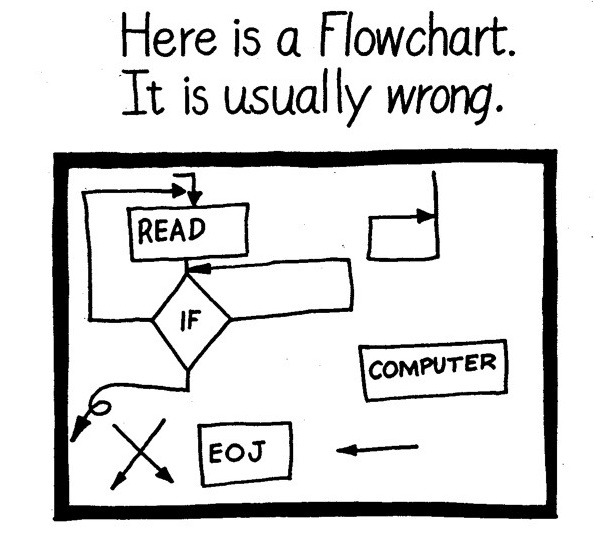July 15, 2012
#teaching

So what exactly is a Hoosier? I still am not entirely sure, but I am now one officially. At the beginning of June I joined the faculty of the School of Informatics and Computing at Indiana University.
In any case, we are now fully moved, present, and ready for action!
May 31, 2012
#publications
Osiris is the annual special-issue companion to Isis, the premier journal of the history of science. In preparation for the upcoming issue on Masculinities in Science, the Philadelphia Area Consortium for the History of Science [PACHS] held a consortium on gender, science, and technology. I presented my contribution to the forthcoming Osiris volume, tentatively entitled “Beards, Sandals, and Other Signs of Rugged Individualism”: Masculine Culture within the Computing Professions.” Full paper to appear in the summer of 2015.
Update: the published Osiris version of the Beards and Sandals paper is now available.
February 20, 2012
#publications
In the most recent edition of the Chicago Law Review, two former University of Pennsylvania colleagues and I published a long (20,000 word) review/response to Timothy Wu’s recent book, The Master Switch. At the heart of the review is the question “what does it mean to use history as a guide for contemporary policy?”
This is my first publication in a law journal, and the process was even more rigorous than the usual peer review. I have never before had a dedicated fact checker…
Full paper here.
January 10, 2012
#teaching

Becoming a professional academic means learning how to do research.
In this seminar, we will focus on epistemological concepts and processes of theory generation and testing as they apply to the study of Information. Our goal is to provide you with the tools needed to advance to the next level in your scholarly career.
In addition to learning about the theory and practice of research, you will also develop the professional skills associated with being a working academic, including presentation, publication, networking, and teaching. The readings will focus on the application of theories from the social and humanistic studies of science and technology to contemporary questions in information studies.
New Course Download the syllabus.
January 09, 2012
#publications
Update: The Kindle Edition of The Computer Boys Take Over is now available on Amazon!
December 05, 2011
#publications
In an essay in the current issue of the IEEE Annals of the History of Computing, I explore the implications of the focus on “computing celebrities” in the popular press on the scholarly discipline of the history of computing. The recent passing of Steve Jobs has only exacerbated a long-standing tendency to focus on idiosyncratic, unrepresentative, highly mythologized geniuses such as the “two Steves” (Jobs and Wozniak), Bill Gates, Larry Ellison, and Mark Zuckerberg. I compare such cults of celebrity to early history of science, which emphasized (generally apocryphal) “eureka moments” (Newton’s apple, Darwin’s finches, Archimede’s bathtub) at the expense of nuanced, situated historical biography. I argue that the history of computing can draw some instructive lessons from the ways in which historians of science have learned to both harness the popularity of the scientific biography for good and overcome its inherent limitations and hazards.
November 01, 2011
#research
From the very earliest days of electronic computing, “flow diagrams” (later “flowcharts”) have been used to represent the conceptual structure of complex software systems. In much of the literature on software development, the flowchart serves as the central design document around which systems analysts, computer programmers, and end-users communicate and negotiate. And yet the meaning of any particular flowchart was often highly contested, and the apparent specificity of such design documents rarely reflected reality. In fact, some of the first software “packages” (commercial applications that could be purchased off-the-shelf) were used to reverse-engineer the flowchart specification from already developed computer code. That is to say, the implementation of many software systems actually preceded its own design! Using the sociological concept of the boundary object, this paper will explore the material culture of software development, with a particular focus on the ways in which flowcharts served as political artifacts within the emerging communities of practices of software development.
October 21, 2011
#publications

Update: The “Chess as Drosophila” article was recently awarded the 2013 Maurice Daumas Prize.
My article “Is Chess the Drosophila of AI? A Social History of an Algorithm” is now available as an online preprint from Sage Journals Online. The print version will appear in the next issue of Social Studies of Science. Depending on your level of access to Sage Online, you can read an advance copy of the full version.
For those of you without access to the Sage database, a draft version of the computer chess paper is available.
Update: The final version of the Chess as Drosophila piece is now available in the February 2012 issue of Social Studies of Science.
September 15, 2011
#media

My research on the history of women in computer programming has been getting some national media attention lately. While I am told that imitation is the sincerest form of flattery, the unattributed “borrowing” of my work was disconcerting, to say the least. Nevertheless, if you are interested in my reseach on the “masculinization” of computer programming, it can be found in both The Computer Boys Take Over and in an essay published in a recent collection edited by Tom Misa called Gender Codes: Why Women are Leaving Computing (Wiley, 2010).
My response to the Washington Post editorial about the plagiarism of my work can be found here.
September 09, 2011
#publications

In the current issue of Science, I have a review of a recently published collection of the late Princeton historian Michael Mahoney’s essays on the history of software [Histories of Computing, Harvard University Press, 2011, Thomas Haigh (ed.)] Mahoney was one of the intellectual giants of the history of computing. I studied with him in graduate school, and he was a friend and colleague for many years afterward. For any scholar of the information age, this is a collection well worth owning. Read the review: among other things, it is very likely the only time I will get published in Science.
A brief but insightful quote from the first of Mike’s essays to appear in the volume about the importance of studying the histories of computing: “What is truly revolutionary about the computer will become clear only when computing acquires a proper history.”






